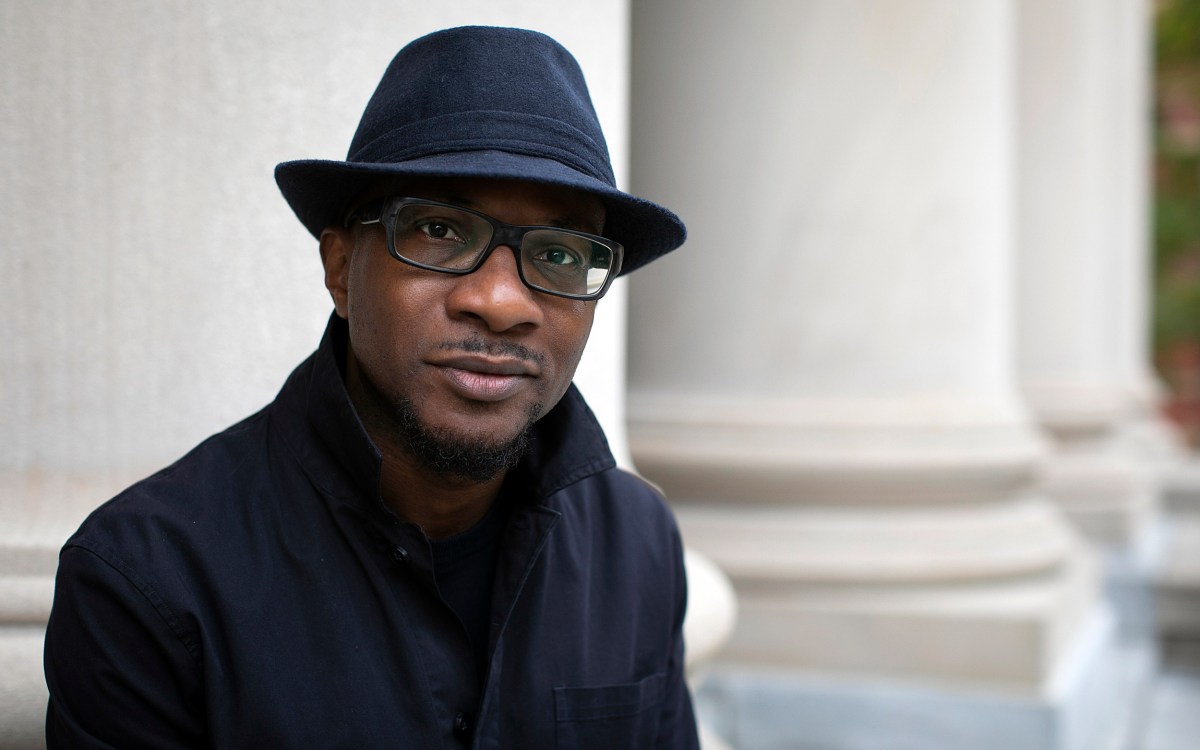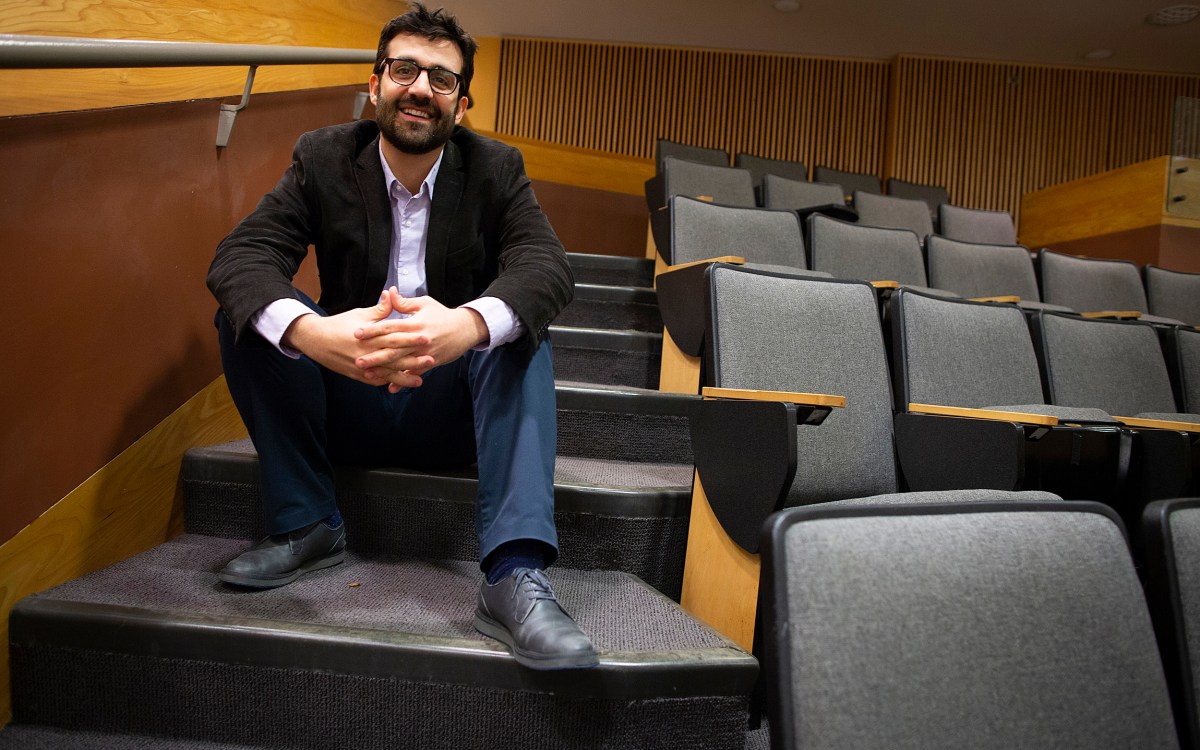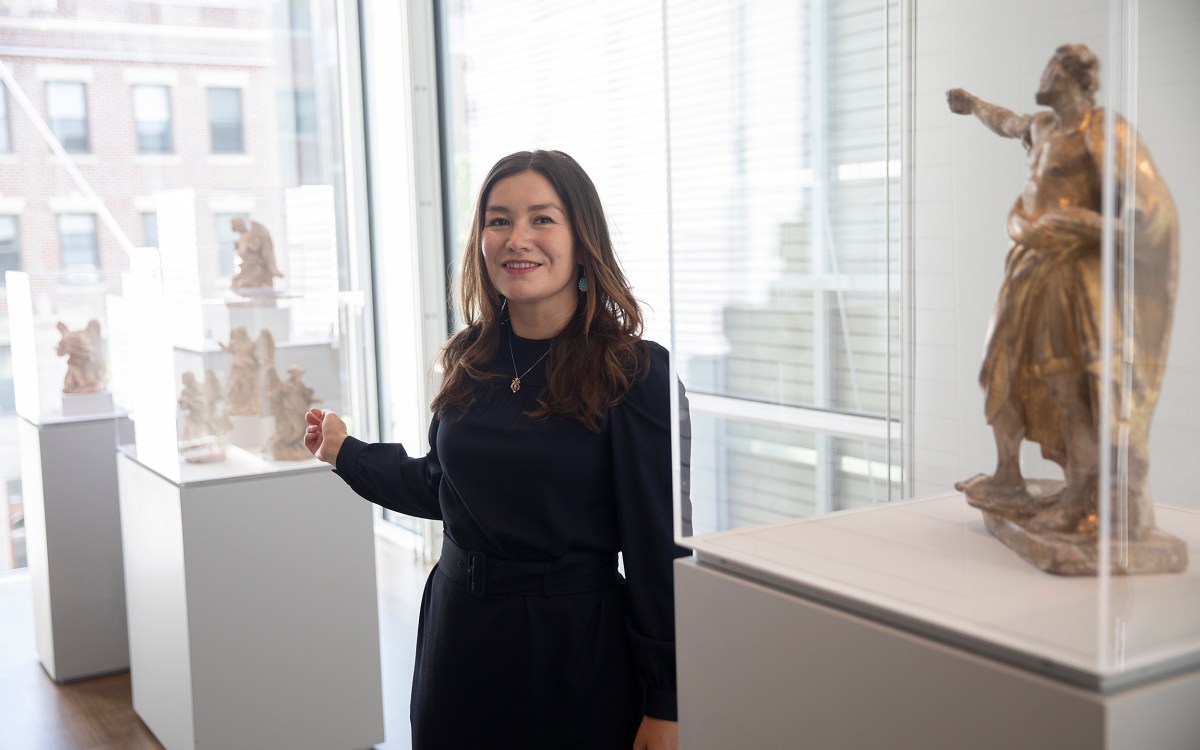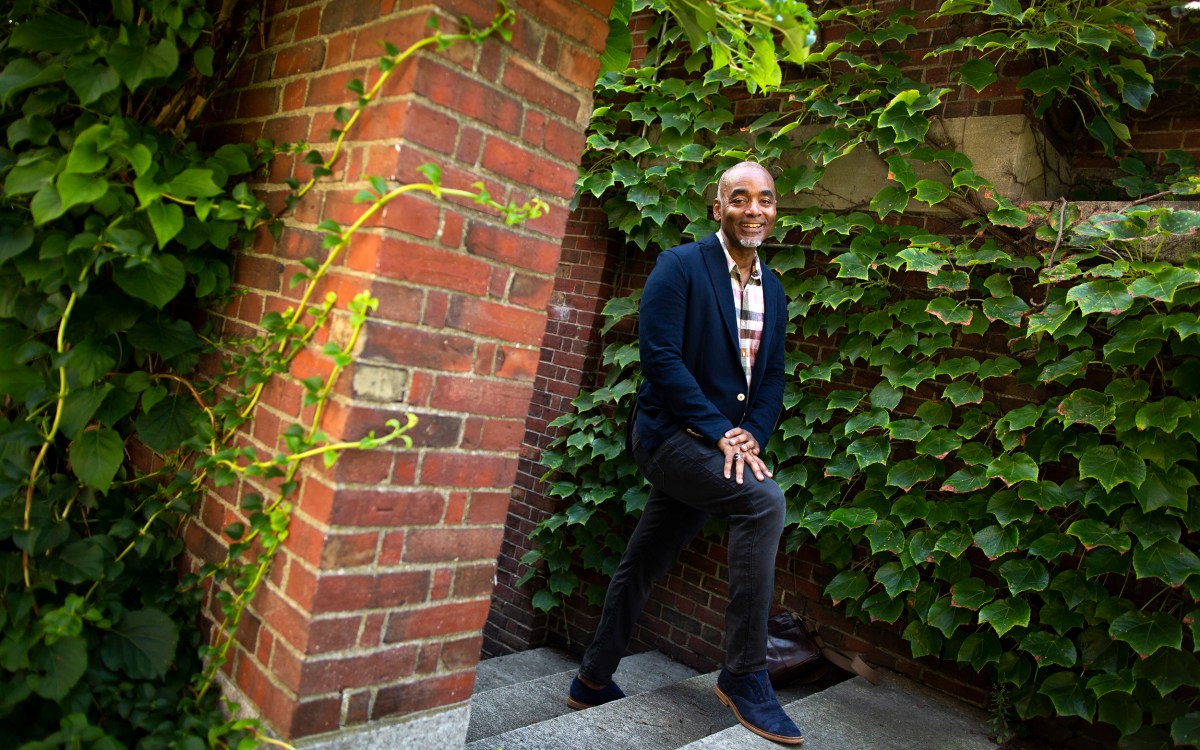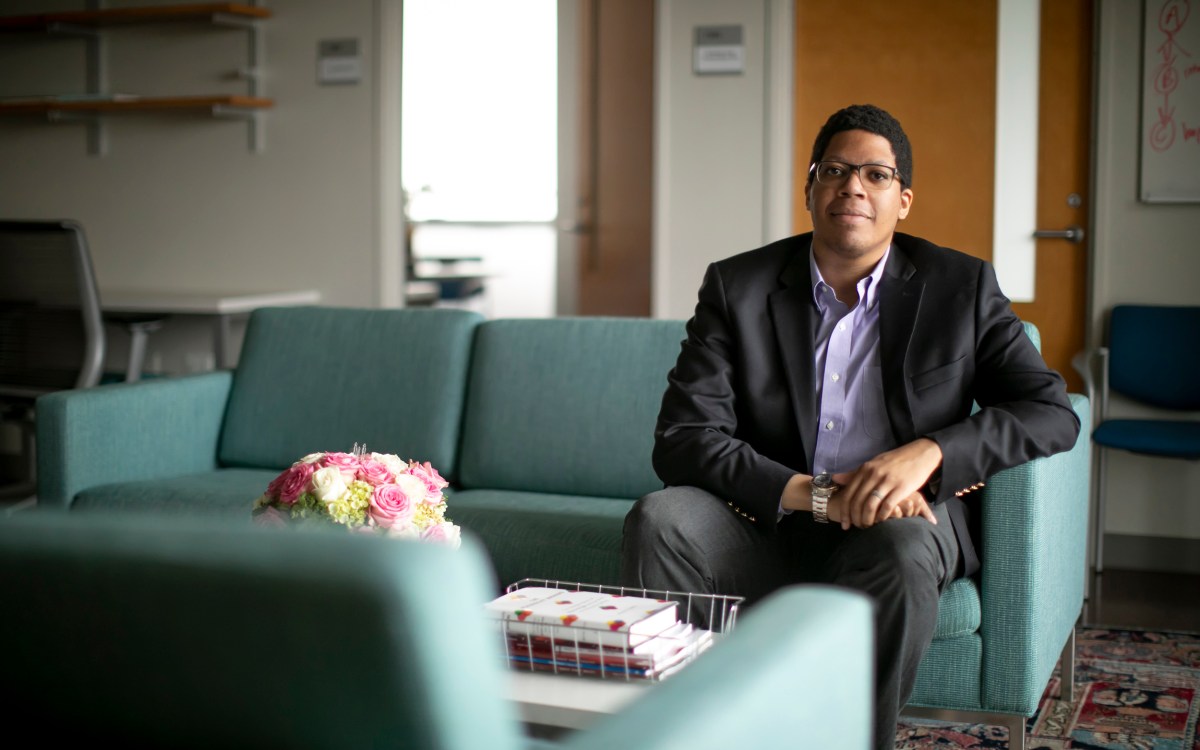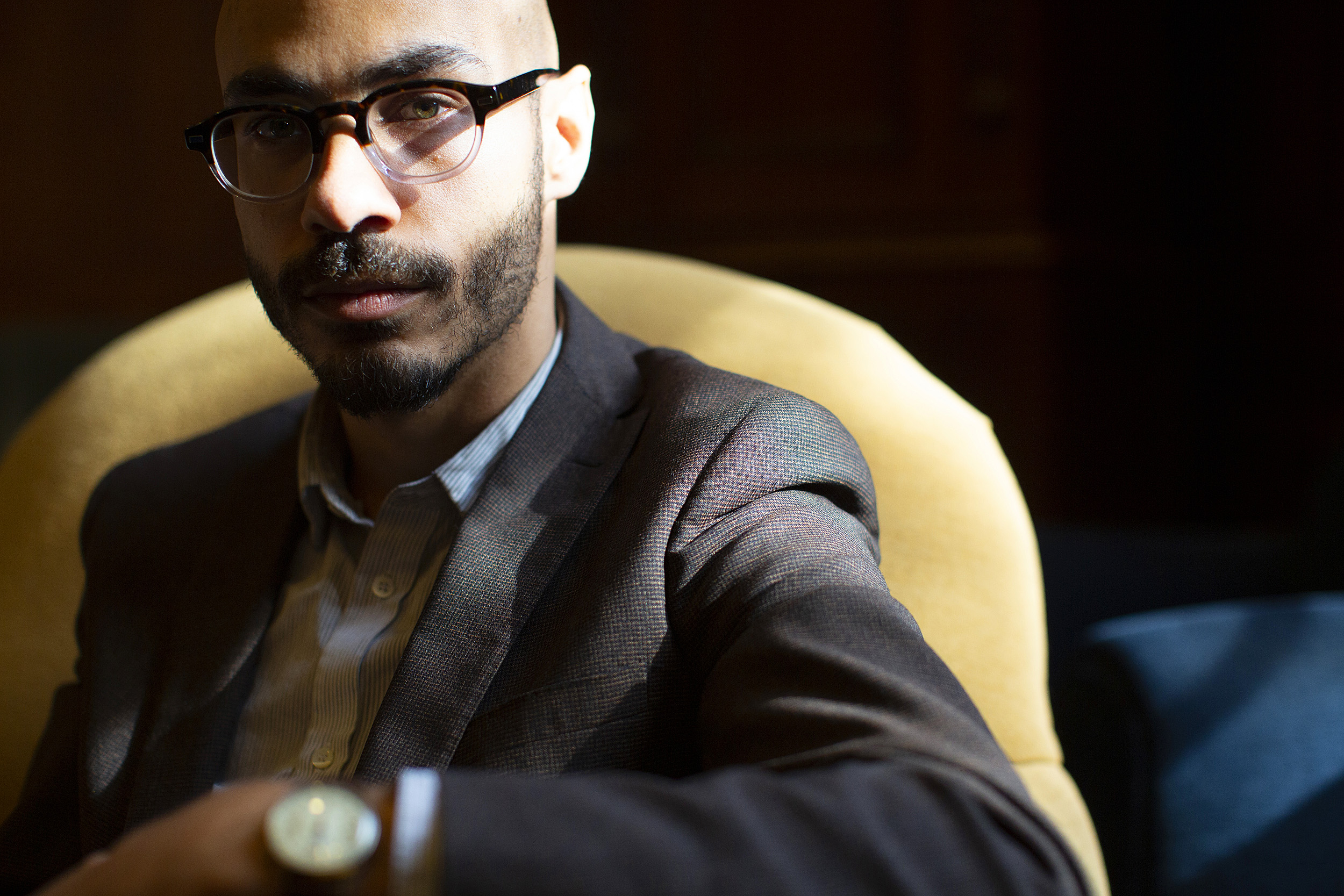
“I find my students come in with engines roaring. I’m excited about the passion in the room,” says Jesse McCarthy, who is teaching “Introduction to Black Poetry” and “James Baldwin.”
Photos by Stephanie Mitchell/Harvard Staff Photographer
New faculty: Jesse McCarthy
English and AAAS professor on teaching, his path to academia, and reframing the canon
This article is part of a series introducing new faculty members.
In the summer between his junior and senior years at Amherst College, Jesse McCarthy interned at Books for Boys, a literacy program run out of a children’s shelter in Hastings-on-Hudson, N.Y.
“That summer marked me,” he said. “I discovered I enjoyed teaching and was good at it, and I was able to communicate that love of books and reading.”
McCarthy is now completing his first year as part of the faculty of the English and African and African American Studies departments, an appointment he started a month after receiving his Ph.D. at Princeton.
Q&A
Jesse McCarthy
GAZETTE: How is the teaching going?
McCARTHY: This spring, I’m teaching a lecture course, “Introduction to Black Poetry,” which introduces students to a black poetic tradition that I trace from Phillis Wheatley and Jupiter Hammon up to the present, to poets like Morgan Parker and Terrance Hayes. The idea of the course is to get students to interrogate the formation of this tradition, to ask how these poets thought about their work, debate the relationship between art and politics, and question the scope and nature of identity, of diaspora and cultural memory, and to anchor these reflections in close contextual reconstructions of important historical movements like the Harlem Renaissance, Négritude, the Black Arts Movement, black feminism, and the Dark Room Collective, a poetry circle that was founded right here in Cambridge. In the course I also teach music as a form of lyric expression that is inextricably bound up in the textual poetics of black poets, so I model critical listening and critical readings of spirituals, the blues, gospel, jazz, soul, hip-hop, and so on.
In my seminar “James Baldwin,” we’re reading the novels of Henry James and James Baldwin alongside one another and using their essays on writing to think about theories of the novel and its relationship to politics, morality, sexuality, and social mores. There was enormous interest in that course. I turned a number of students away and limited it to 15, many of them seniors. It’s exciting to have such brilliant students, and they just run with the material. When you’re a new professor, there’s anxiety: Will I have enough? Will they be bored? Will they like what I’ve brought to the table? I find my students come in with engines roaring. I’m excited about the passion in the room and the way we have discussions that feel very urgent and combine more traditional questions with more contemporary concerns about identity and appropriation. They’re extraordinarily sensitive and interpersonally generous in the way they share the seminar space. They enjoy the back and forth of exploring an idea further. You wonder about assigning that much reading, but everyone is prepared. They’ve read and they’ve read closely. What they recall in very detailed fashion within a James novel is impressive and makes for a wonderful atmosphere.
Sometimes it can seem like there’s a clash in the academy between offering courses that speak to contemporary concerns and honoring and transmitting important canonical works that the study of literature has been built upon. I want to show that you can take a figure like Henry James and one like James Baldwin and teach them together in ways that are mutually beneficial, that make the canon exciting and also bring it into urgent and contemporary debates that students are rightly demanding their courses address. These authors explore sexuality, expatriation, freedom and identity, and a preoccupation with the “American scene.” They share a concern for the novel’s capacity to function as a work of art with moral value. Henry James was James Baldwin’s favorite novelist; but, as my students are learning, there are many things Baldwin saw in America — especially in the way societal pressures shape individual consciousness — that allow us to read the Jamesian novel in a new light.
“You can take a figure like Henry James and one like James Baldwin and teach them together in ways that are mutually beneficial.”
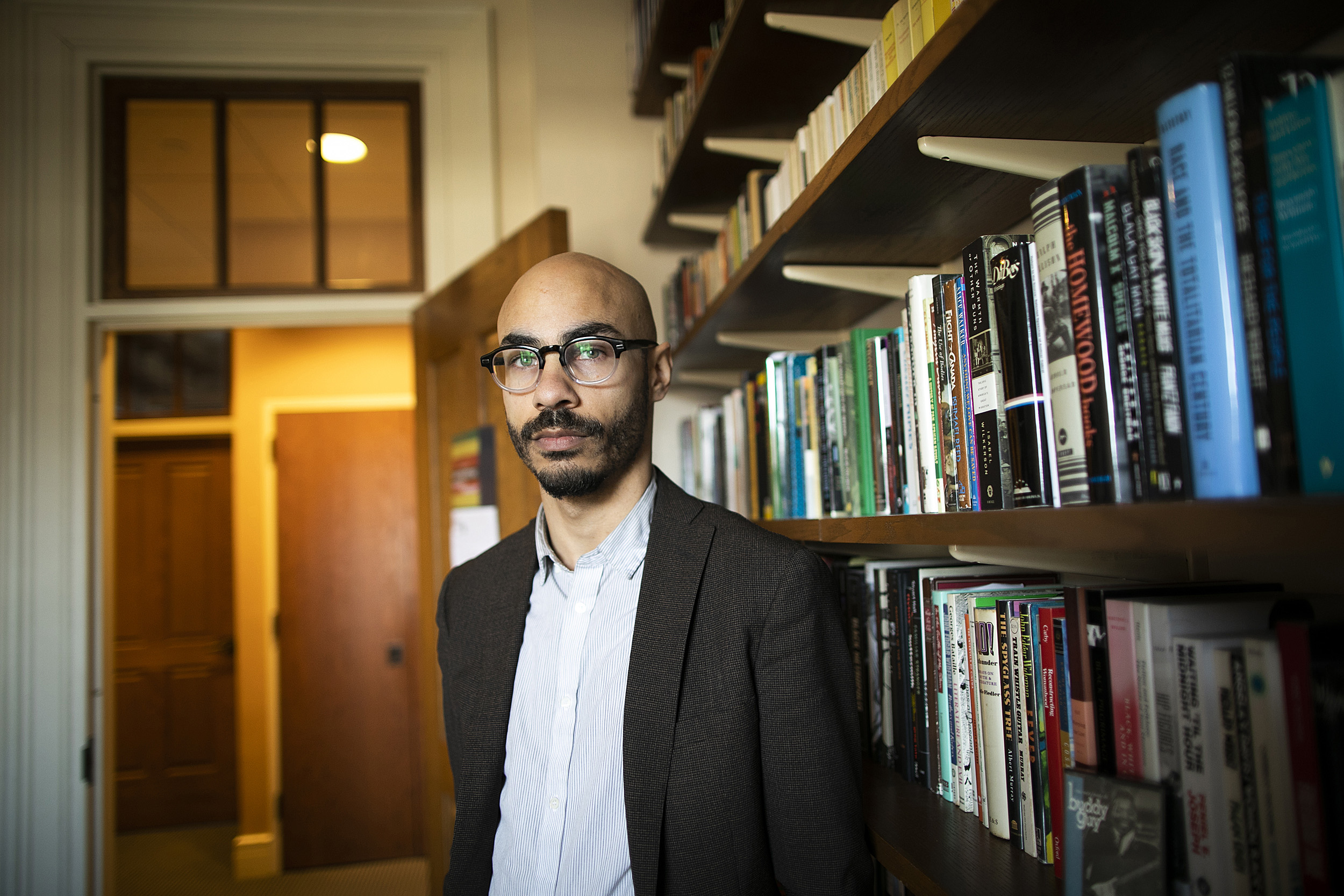
GAZETTE: What does your writing life look like outside of Harvard?
McCARTHY: Part of my intellectual profile is magazine writing. I work as a writer and editor for The Point, a literary magazine devoted to essays. That writing informs my approach to teaching. I see it as my role, particularly in an English department, to work closely with students on writing — how to become a stronger writer, how to edit, how to think, and how to revise a draft. I’m interested in using that work to model and also experiment with ways of thinking in public. Recently, for example, I wrote for the magazine N+1 about trap music by adapting an approach to form I found in Susan Sontag. I hope that’s something I bring to the table at Harvard, a sense of excitement and experiment with contemporary writing that also connects back to classic and canonical texts. I think we’re all aware of the breakdowns in political discourse, divides, political correctness, how to talk about race in politics and culture. Harvard needs to be a place where we are actively thinking through those questions, and I to contribute to helping students think about ways we might oxygenate these conversations and debates.
GAZETTE: After college you taught in Brooklyn for New York City Teaching Fellows. What was the impact of that experience, and where did it lead you?
McCARTHY: That was the hardest job I’ve ever had and also probably the most rewarding. It forced me to grow up in a lot of ways. It taught me a lot about the possibilities of teaching that come from having strong, close interpersonal relationships with students, but also the limitations of teaching in terms of institutional and structural forces that condition those situations. It solidified for me the notion that this was something I really enjoyed and I was potentially good at, but I also came to recognize that, at that moment and at that age, I wasn’t ready or able to be the teacher the students needed. I learned a lot from the extraordinary teachers working there.
After I left, I had some wandering years. I did odd jobs. I traveled. I lived in San Francisco, doing catering. I came back to New York and worked at Book Culture, a bookstore near Columbia. I enjoyed it and I was a good bookseller, and eventually became a manager. In my second year there, I thought of other options. I was an English major in college, but I had been out of school four or five years so I went to the New York Public Library and did a lot of reading to find out what kinds of conversations were going on in the field.
When I arrived at Princeton, I didn’t come in with the certainty that I would become a professor. I knew that I still had a lot more to learn, but I also knew why I cared about the disciplines I was interested in, and I had a clear sense of the kind of scholarship I thought still needed to be done and that I felt I could contribute to. But it wasn’t a straight path. I try to convey that to the students here. You don’t have to be relentlessly achieving and perfect. There’s this ambient anxiety that if you take the time to look around and explore that you will waver and fall off the conveyer belt that you believe is necessary to being “successful.” There are many, many ways to get to where you’re meant to be in life, and people from all walks have something important to offer. Having the opportunity to expand your horizons with learning is a precious gift, and I want students to value that for its own sake, and help them make the most of the opportunities we’ve been blessed with.
This interview has been lightly edited for clarity and length.



